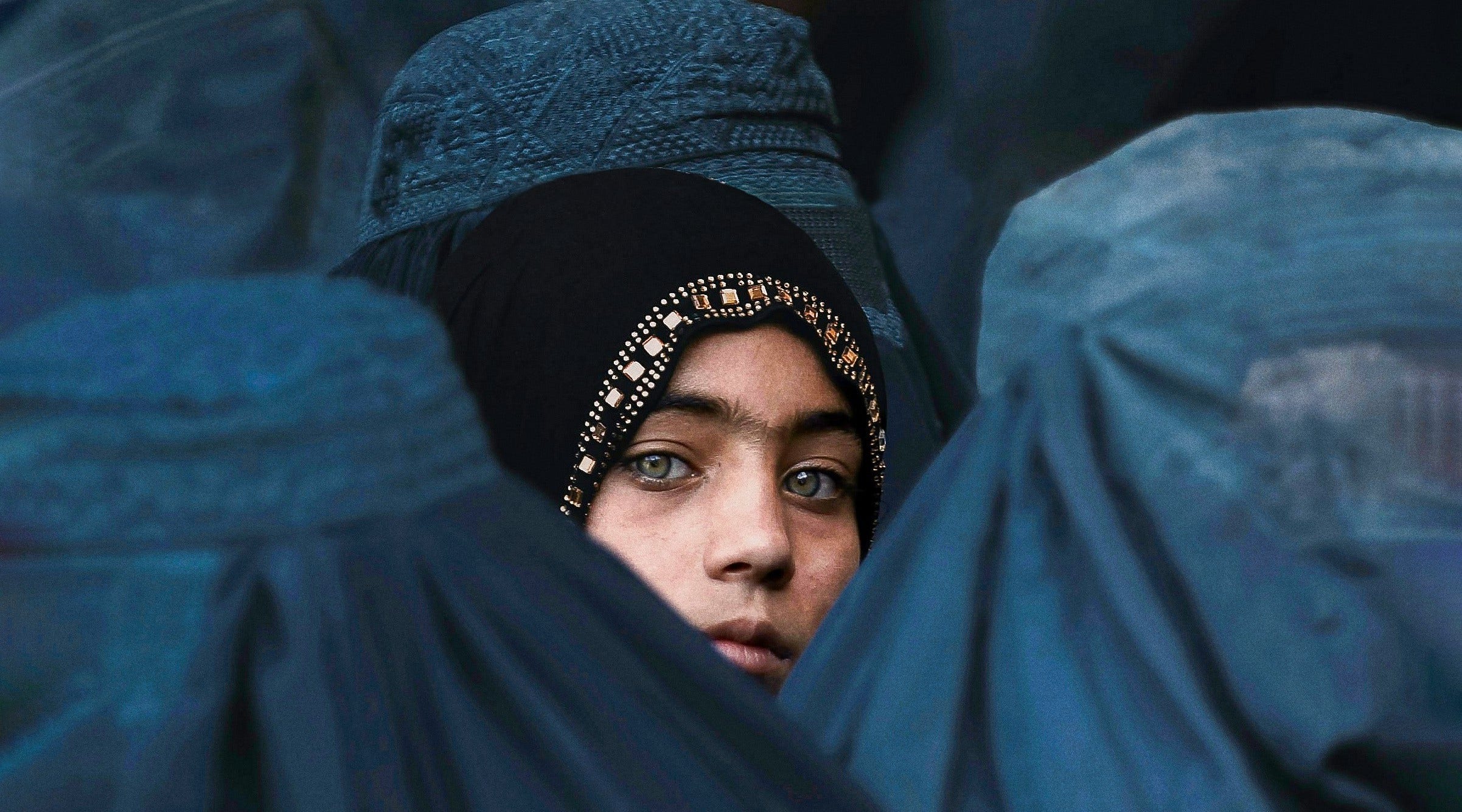
When the Taliban took control of Afghanistan on Aug. 15, 2021, Afghan Ambassador to Austria Manizha Bakhtari faced a serious dilemma. Should she continue to represent the former government from her Viennese post or abandon her title and role?
“We were in a state of shock,” Bakhtari told Fox News Digital. “After a couple of days, my team and I came to the conclusion that we must continue as the representatives of the Islamic Republic of Afghanistan.” The Taliban now calls the country the Islamic Emirate of Afghanistan.
For more than two years following that monumental decision, Bakhtari remains the only female ambassador to stay the course, operating with a lean team from a small office in Vienna. In addition to helping diaspora Afghans with their consular needs, Bakhtari continues to travel to conferences and meetings with fellow world leaders to speak about the tragedies unfolding in Afghanistan. Chief on her list of concerns is the Taliban’s treatment of Afghan women.
UN ADDS AFGHAN CRISIS ONTO AGENDA AFTER TALIBAN BANS WOMEN AND GIRLS FROM SCHOOL, PUBLIC SPACES, JOBS
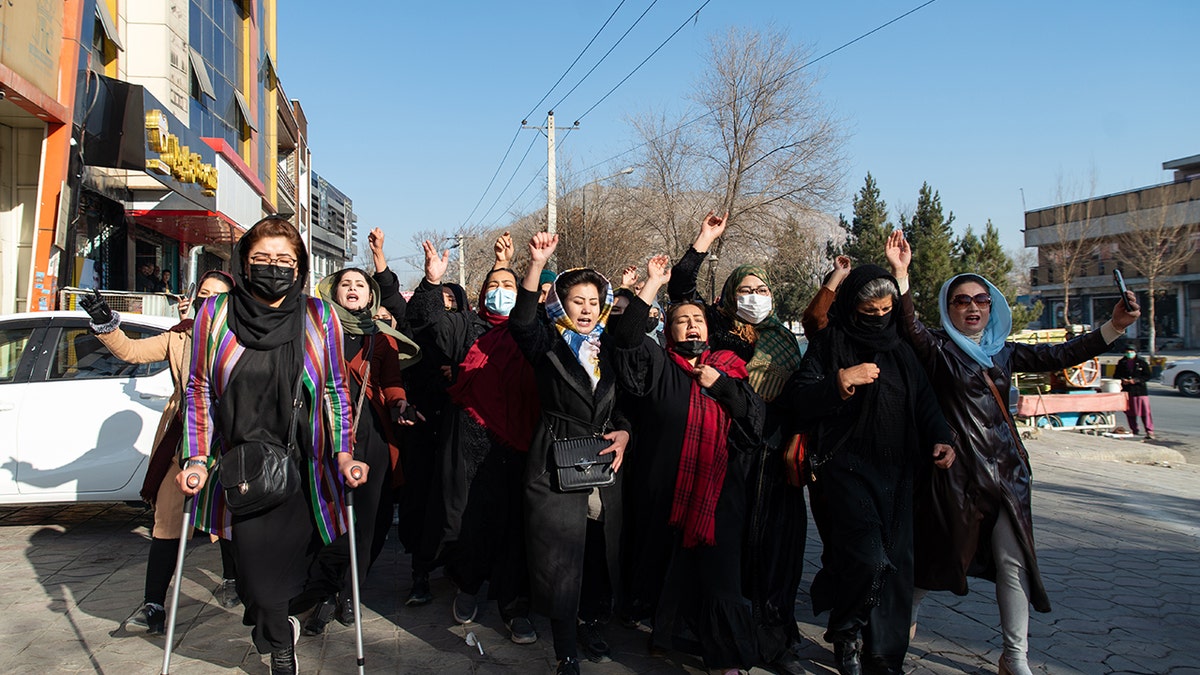
Afghan women protest against a new Taliban ban on women accessing university education on Dec. 22, 2022 in Kabul, Afghanistan. A group of Afghan women rallied in Kabul against a governmental order banning women from universities. (Stringer/Getty Images)
“Five years before, we had hundreds of women in our parliament, in our government, in the civil societies … and now a woman cannot exhibit her rights,” Bakhtari explained. She noted that the Taliban’s “violations and discriminatory measures” against women have escalated in recent months. After closing domestic violence shelters in 2021, Afghanistan’s rulers have begun imprisoning women to protect them from gender-based violence.
Flouting their own decrees, the Taliban have recently arrested young girls and women who disobeyed rulings about proper dress codes. These arrests have specifically targeted women in areas populated predominantly by members of Tajik and Hazara minority groups. These events are accompanied by the stricter enforcement of laws governing travel without a male escort, and the mass layoffs of 600 women at two Afghan manufacturing plants.
Recent reports have highlighted the edicts and directives – over 100 to date – which have whittled away women’s freedoms, depriving them of access to education beyond the sixth grade, and keeping them from moving about freely, accessing public services, or holding a growing variety of jobs.
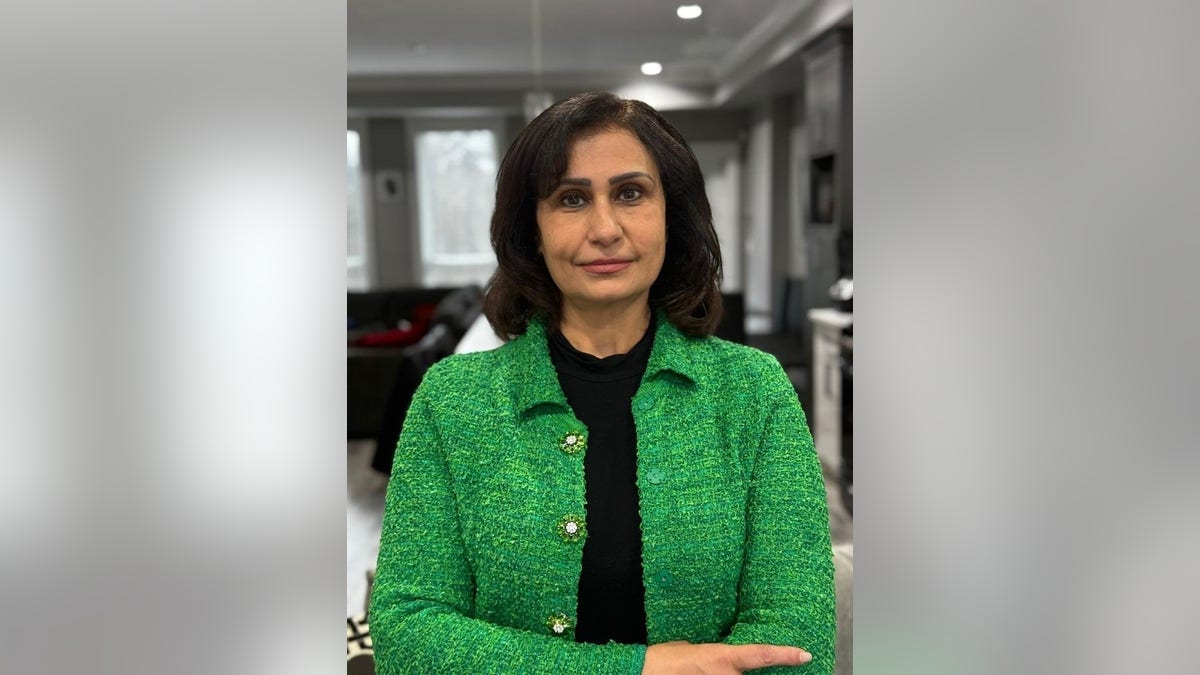
Austrian Ambassador Manizha Bakhtari operates a small consular office in Vienna, where she advocates for the Afghan women and girls who have lost their rights under the Taliban. (Manizha Bakhtari)
Bakhtari is urging the West to look beyond these rulings to see the societal impact of the Taliban’s misogyny. The ambassador noted that human trafficking was on the rise, particularly as women-led families seek assistance to escape the country due to Taliban restrictions. Bakhtari related that some women have been sexually victimized while being ferried to their destinations.
The State Department’s 2023 report on trafficking in persons in Afghanistan corroborates Bakhtari’s concerns. According to the report, “some intermediaries and employers force Afghans into labor or sex trafficking,” while some Afghan women and girls “are exploited into sex trafficking and domestic servitude” after being sold in neighboring countries, or within Afghanistan. While the prior Afghan government had myriad laws and penalties for various trafficking offenses, the Taliban “did not report any law enforcement efforts to combat human trafficking.”
TALIBAN TO BAN WOMEN FROM GYMS, PARKS BECAUSE GENDER SEGREGATION, HEADSCARF LAWS ‘NOT OBSERVED’
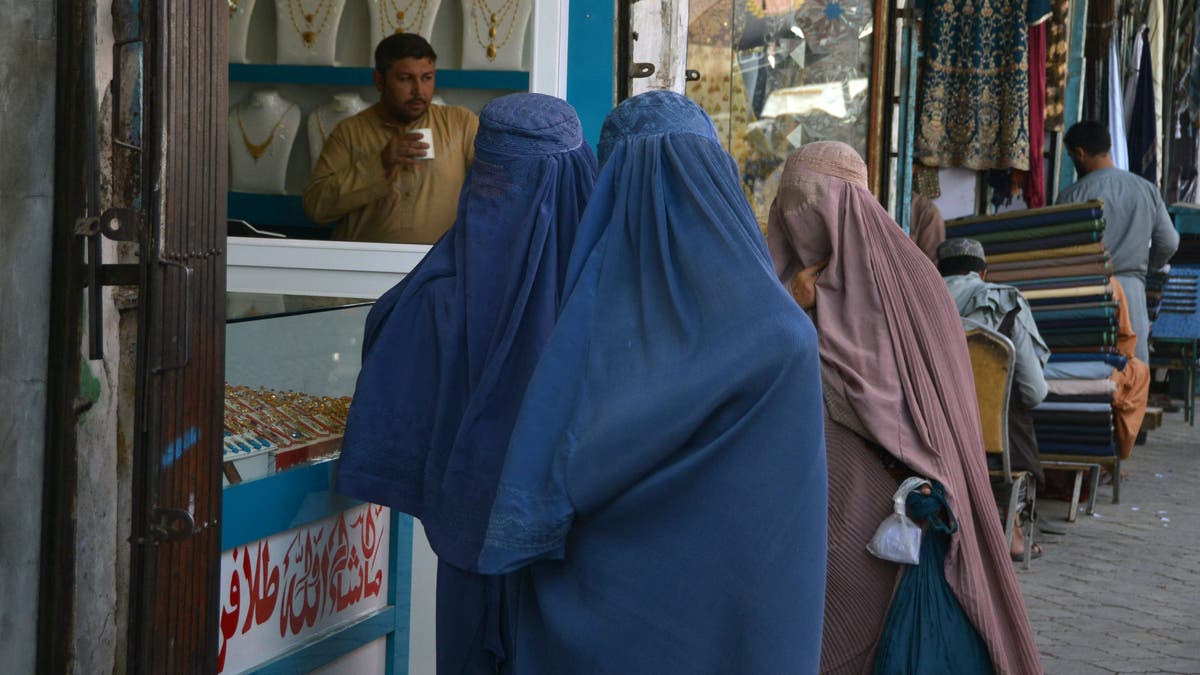
Afghan women wear burkas as they walk along a market in Kandahar. (JAVED TANVEER/AFP via Getty Images)
Bakhtari is also concerned about increases in child and forced marriages. According to a report from human rights organization Rawadari, the Taliban continues to force underage girls into marriage despite Taliban Supreme Leader Hibatullah Akhundzada forbidding this practice.
In a climate of economic desperation, Afghan girls who lack education or employment prospects retain value in the form of the dowry price they command. A recent Washington Post opinion piece found that in a single settlement in Herat province, 40% of surveyed families had either sold their young daughters into marriage or awaited buyers for their daughters. While the Taliban have refuted these findings, author Stephanie Sinclair insists that life will soon be a “nightmare” for child brides who are “saddled with housework and often subject to verbal, physical and sexual abuse.”
Bakhtari noted that loss of employment, social access, education and freedom have led to “dire mental health consequences,” with “reports of depression and suicide, especially among young girls.” The Taliban reported that 360 suicides occurred in Afghanistan in 2022. Comparatively, Rawadari found that in Badakhshan, one of Afghanistan’s 34 provinces, 35 children had committed suicide between August 2021 and October 2023.
2 YEARS AFTER BIDEN EXITED AFGHANISTAN, TALIBAN BANS WOMEN FROM CLASSROOMS, MOST JOBS
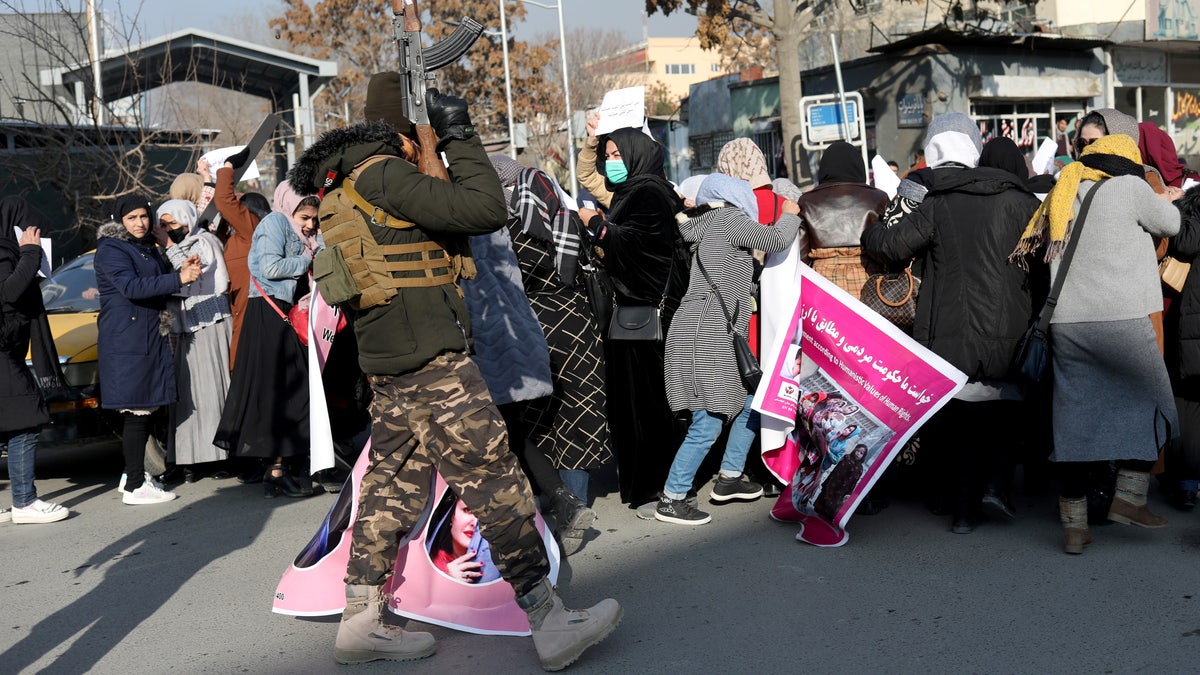
A member of Taliban forces fires in the air to disperse Afghan women during a rally to protest against what the protesters say is Taliban restrictions on women, in Kabul, Afghanistan, Dec. 28, 2021. (Reuters/Ali Khara)
Bakhtari believes that the Taliban’s actions “constitute a grave form of gender apartheid.” She has joined Afghan women and women’s rights advocates in advocating for gender apartheid to be included in a United Nations draft treaty concerning crimes against humanity. “Only by putting a label on these atrocities will we be able to mobilize real actions against the perpetrators,” Bakhtari explained.
Current international reactions to the human rights disaster underway in Afghanistan frustrate Bakhtari.
She believes that the exclusion of Afghan women from international discussions about the future of Afghanistan “is [a form of] violence against women.” So too are suggestions that the Taliban have achieved enduring peace in Afghanistan. “Peace does not mean the absence of war,” Bakhtari retorted. “Peace means justice. Peace means equality for everyone in the country.”
For the leaders who urge that the Taliban need time to change and modernize before facing international condemnation, Bakhtari points out the generational setbacks Afghan women have already endured. “We have already lost three, four, or five generations of our women going to school [so] even if the Taliban goes today, we need at least 20 years to build once again,” the ambassador insisted.
CLICK HERE TO GET THE FOX NEWS APP
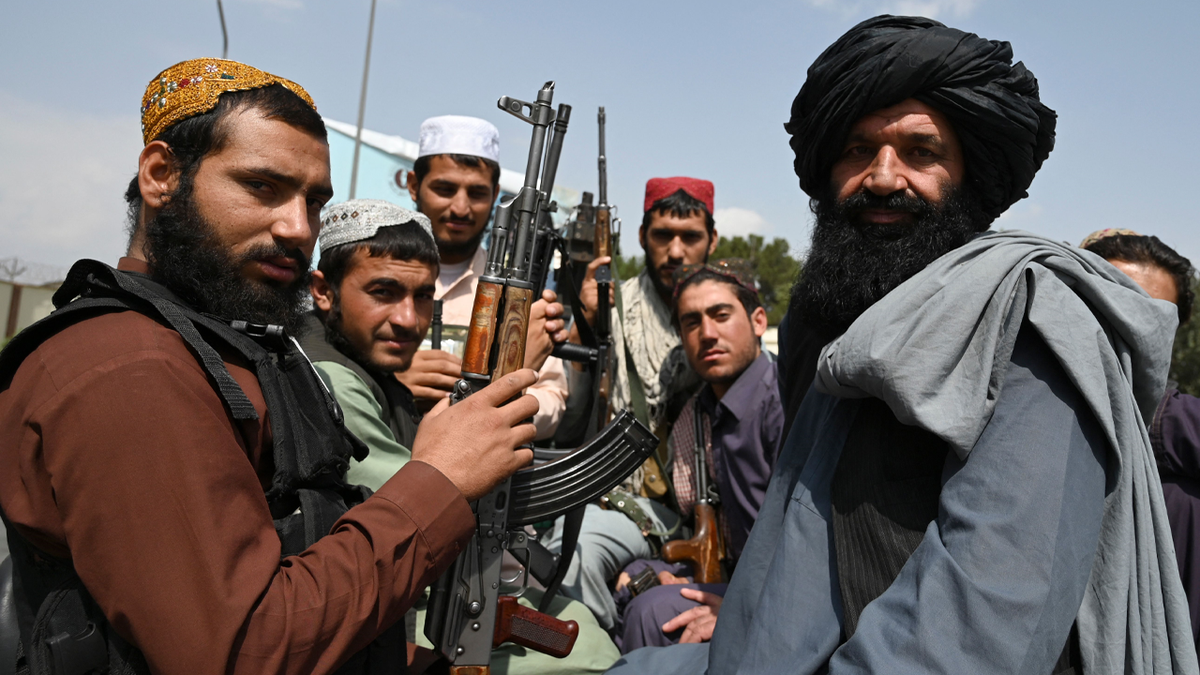
Taliban militants holding rifles. (WAKIL KOHSAR/AFP via Getty Images)
Bakhtari believes some Western leaders remain silent about the Taliban’s rulings out of a belief that they reflect overall cultural attitudes about women among Afghans. Bakhtari admits that there remain small pockets of Afghans in rural areas who see no value in educating girls, and who expect women to don the burka.
The ambassador fights for a more inclusive Afghan culture. She demonstrated family pictures taken after her mother and her mother-in-law graduated from college in the 1970s. Neither woman wears a head covering. Another photograph showed Bakhtari’s parents on the day of their wedding. Her father wore a western suit, his hair slicked back in a style reminiscent of Elvis. Her mother wore a form-fitting dress with a beehive hairdo.
“These are the good examples of how Afghan society works,” Bakhtari said.





